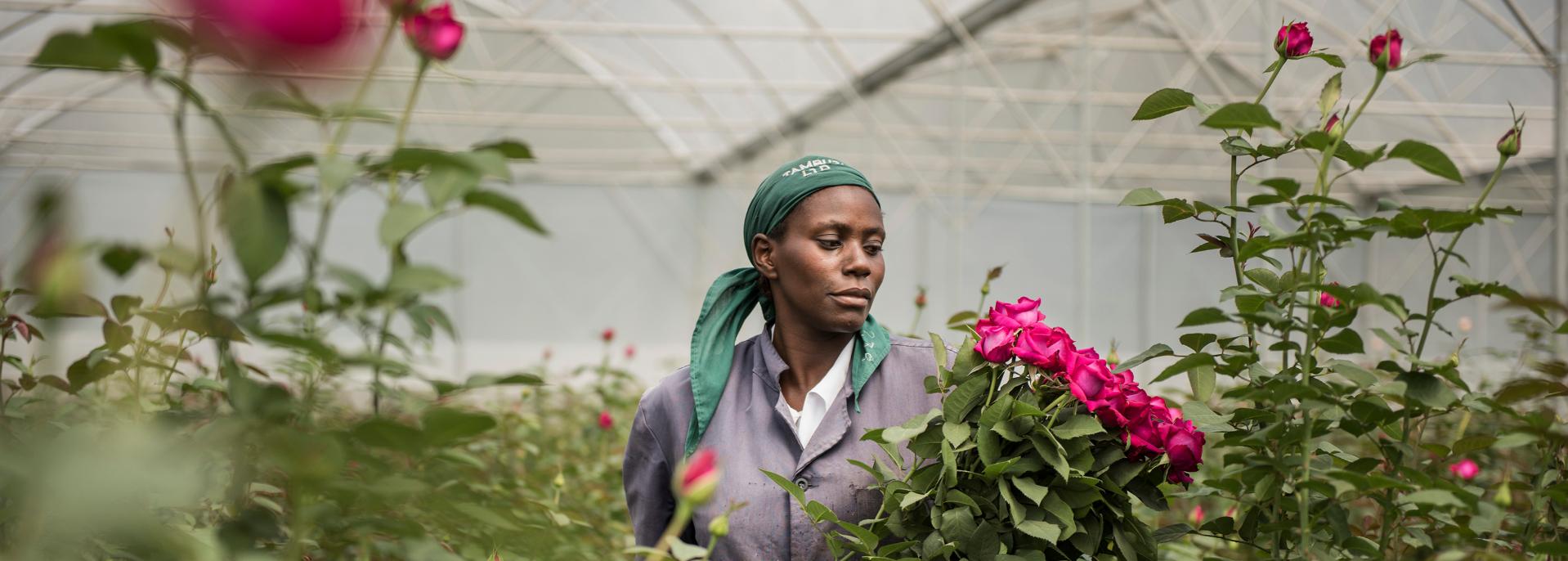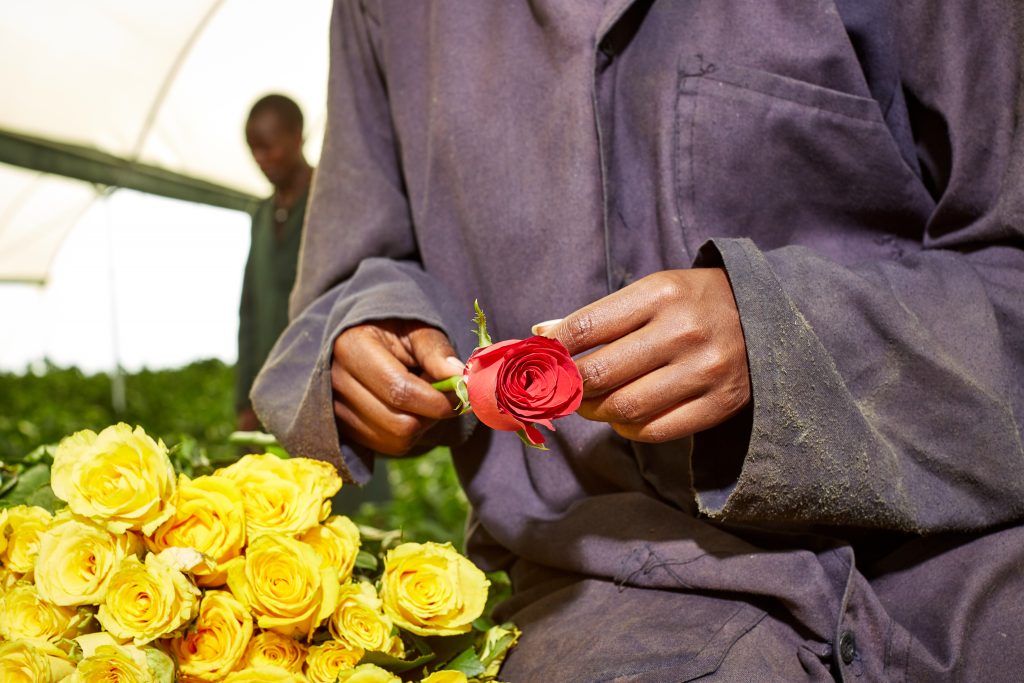We must ensure that the stimulus packages being introduced reach women workers.
The COVID-19 global pandemic has completely destabilized the world and the magnitude of its effects depends on how long social distancing, work from home, curfews and lockdowns will be in place. The pandemic has disrupted global supply chains and brought to a standstill flourishing economy.
These inevitable measures and the looming uncertainty about the virus have had dire effects on businesses and workers’ incomes and with numbers mounting daily, COVID-19 has had a significant and disproportionate effect on women workers in the low-income sector. The impact of COVID-19 pandemic has particularly had scathing effects on women workers in Kenya’s horticulture sector impacting them socially, economically and psychologically and worse still escalating to their homes.
More than 150,000 people work on Kenyan flower farms, with women making up the majority. Before the pandemic, the budget for food in many families across Kenya was manageable as some most children were provided with some meals in schools. After their closure due to COVID-19 restrictions, the consumption of food in households has doubled because they are fully dependent on the meals at home.
The aftershocks of the COVID-19 pandemic have also proved that it is not only a health crisis but an economic crisis. Jobs have been lost, businesses have closed and economies are struggling and it is not business as usual.

Kenya exports up to 70 per cent of its flowers to Europe with imminent lockdowns in European countries having a huge negative trickle-down effect on the horticultural sector. According to the Chief Executive Officer of the Kenya Flower Council, the industry has been losing about Ksh 20 million per day due to the pandemic.
In the third week of March alone, more than 30,000 temporary workers lost their jobs with a further 40,000 permanent workers being sent home on annual leave. Women have been majorly affected having to shoulder the burden as breadwinners for their families.
Speaking during a Webinar hosted by Hivos East Africa on 27 May 2020, on the impact of COVID-19 on women workers in Kenya and Uganda horticultural sector; Leah Eryenyu, the Research, Advocacy and Movement Building Manager at Akina Mama wa Afrika, Uganda said that single mothers have had to make the difficult choice of staying at home without pay instead of being sheltered at the workplace as they do not have childcare support at home.
“Governments need to employ gender-sensitive responses in the fight against the pandemic,” she said.
She also highlighted that the downsizing of workers in the farms has led to an increased workload for the remaining workers and unfortunately the escalated workload has not translated to increased pay.
In Kenya, Mary Kambo, who is the Programme Advisor Labor Rights at Kenya Human Rights Commission (KHRC) said that the flower farms have resulted to increased labour to reduce wages since freight costs have shot up to levels between Sh450 and Sh700 per kilogramme from Sh130 to 330 per kilogramme.
She added that the overload is causing adverse effects on women’s physical and psychological well-being.
To mitigate the current situation, Esther Nekambi the Executive Director of Uganda Flowers Export Association (UFEA) revealed that the association is collaborating with the Department of Foreign Affairs through the Dutch Embassy to build on the establishment of a living wage.
Janepher Nassali, the General Secretary of Uganda Horticulture, Industrial, Service Providers and Allied Workers Union (UHISPAWU) highlighted that the union has ensured that the safety and preventative measures have been instituted by the employers to protect the remaining workers from contracting the virus.
“The union confirmed that water and soap are available for handwashing and masks are provided for each worker.” Nassali insisted.
George Kegoro, the Executive Director KHRC informed the participants that where employers can genuinely demonstrate that they cannot sustain workers, the government through arrangements financed by taxes ought to be in a position to avail these funds for wage payment and that those measures will protect vulnerable workers at risk of termination.
“Businesses getting stimulus from the government should ensure that the support trickles down to the workers,” he said.
Women doing unskilled, low paid and flexible jobs hardly ever benefit, no matter how well the economy is doing. Low wages and sexual harassment are a persistent problem for these women, especially in horticulture. However, Women@Work continues to work with business, governments and civil society actors to enforce change for women employees regarding decent wages, participation in decision making, leadership at management level and in trade unions, as well as safety and security in the workplace without sexual harassment.




